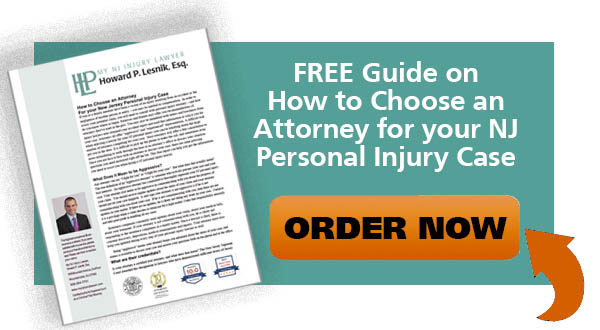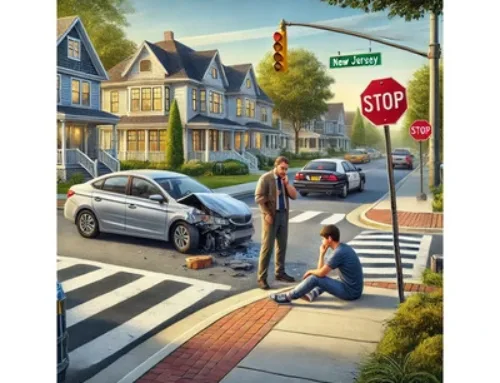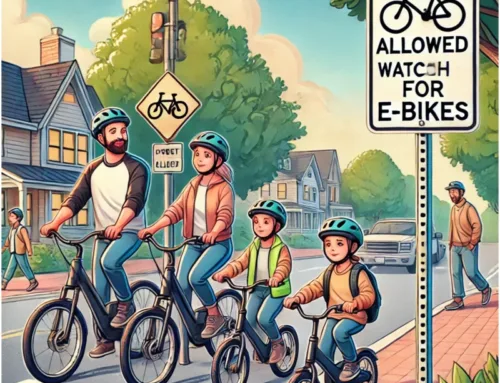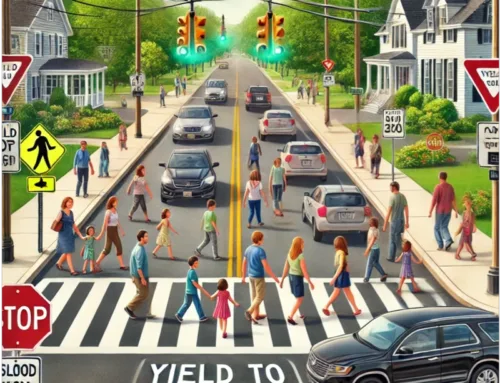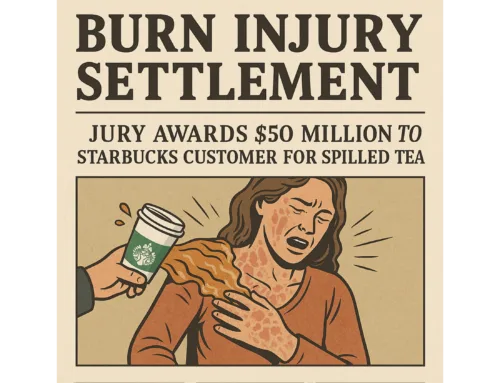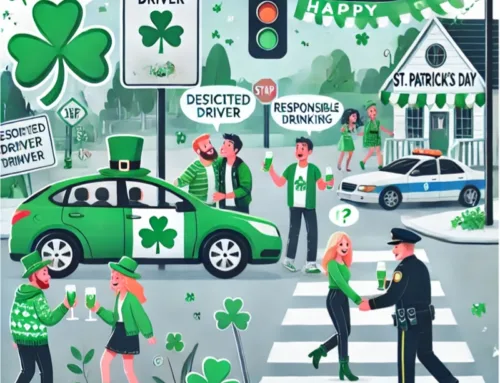Automotive transportation is a fundamental element of American life, and especially in New Jersey, the most densely populated state in the country. That means we share the road with a lot of other vehicles. And unfortunately, where there are large numbers of automobiles, there is a high risk of automotive accidents. No one is immune to that danger – drivers, passengers, motorcycle riders, cyclists, even pedestrians seeking only to navigate a crosswalk safely – anyone can find themselves involved in a car crash without warning. Even the safest, most meticulous driver who takes every reasonable precaution may one day have the misfortune of crossing paths with a distracted, drowsy, or intoxicated motorist, and no one can truly prepare for the devastating consequences that may result.
Most people know if they are involved in a motor vehicle accident, they may be able to obtain financial compensation for their medical bills, injuries, pain suffering, and other forms of damages they suffered as a result of that accident. It’s important to understand, however, that receiving that compensation is not a matter of course; it often requires actively fighting to prove the harm that was inflicted upon you and how it impacted your life. The legal process for seeking injury compensation after an automotive accident is lengthy and complicated – arguably by design, as the more roadblocks stand between you and fair compensation for your injuries, the more likely you are to give up and settle for less than you rightly deserve, especially if you’re trying to fight that battle on your own, without the help of a trusted attorney with extensive experience in automotive injury law.
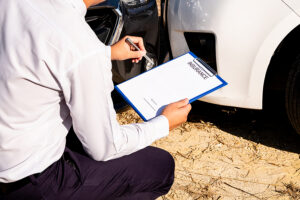 New Jersey is one of 12 US states with no-fault automotive insurance legislation, meaning that your first recourse for compensation for your medical bills after a car accident is your own insurance company. It’s natural to think that your own insurance provider, to whom you’ve been paying premiums for years, would be on your side and want to help you after an accident. Regrettably, that’s not how insurance companies turn a profit. An insurance adjuster will be assigned to your claim, whose job it is to analyze every detail of your case in search of reasons to reject medical bills, minimize the severity of your injuries, and generally ensure that their employers have to pay you as little as possible. If your insurance policy and the details of your injuries allow you to pursue additional compensation from the other driver at fault for your accident, you can expect this same process of scrutiny and denial to be repeated with the opposing insurance company. All the while, your claim process needs to follow a precise set of steps with appropriate paperwork being submitted at each turn, and all within a limited time frame lest you lose the right to pursue compensation altogether – the deadline for filing a lawsuit, for instance, is generally two years from the date of injury.
New Jersey is one of 12 US states with no-fault automotive insurance legislation, meaning that your first recourse for compensation for your medical bills after a car accident is your own insurance company. It’s natural to think that your own insurance provider, to whom you’ve been paying premiums for years, would be on your side and want to help you after an accident. Regrettably, that’s not how insurance companies turn a profit. An insurance adjuster will be assigned to your claim, whose job it is to analyze every detail of your case in search of reasons to reject medical bills, minimize the severity of your injuries, and generally ensure that their employers have to pay you as little as possible. If your insurance policy and the details of your injuries allow you to pursue additional compensation from the other driver at fault for your accident, you can expect this same process of scrutiny and denial to be repeated with the opposing insurance company. All the while, your claim process needs to follow a precise set of steps with appropriate paperwork being submitted at each turn, and all within a limited time frame lest you lose the right to pursue compensation altogether – the deadline for filing a lawsuit, for instance, is generally two years from the date of injury.
Let’s start by breaking down exactly what the various provisions on your insurance policy mean, so you know which kinds of coverage are relevant to your current needs. This is also important information to review if you haven’t been in an accident, in case you need to update your policy to better protect yourself. New Jersey state law generally mandates insurance companies offer these types of insurance coverage:
- Liability
- Property damage
- Personal Injury Protection (PIP)
- Uninsured motorist coverage (UM)
- Underinsured motorist coverage (UIM
- Collision coverage Underinsured motorist coverage (UIM)
The first two coverages offer (liability and property damage) coverage for damages suffered by another driver if you are sued by someone else. Personal Injury Protection (PIP) applies to your own medical bills and related costs; this coverage is fairly narrow in scope, and generally does not apply to compensation for pain and suffering, or other related types of damages. Collision coverage applies to damage to your own vehicle and other related property. The remaining two types of coverage – uninsured and underinsured motorist coverage – are conceptually related, through only uninsured motorist coverage is required by law. Uninsured motorist insurance (UM) applies in situations under which you would be able to seek compensation from the other driver’s insurance company, but they were illegally driving without insurance coverage. Underinsured motorist coverage (UIM) applies when you are able to sue the other driver, but the value that the court determines you are entitled to collect in damages exceeds the other driver’s policy limits. Your UIM coverage applies to the “excess” damages not paid for by the other driver’s insurance. Unfortunately, many drivers carry the minimum in liability coverage that the state allows, in an effort to save on their insurance premiums. Without UIM coverage, the amount you can collect in damages may be capped far below what your injuries actually warrant.
Pro Tip: The amount of coverage available is limited to the amount of insurance coverage purchased in the insurance policy. For example, if you purchased $15,000 in PIP coverage, then your insurance company will stop paying your medical bills after the limit is reached. Then you or your health insurance may be responsible for additional medical bills. Limiting the amount of coverage for your medical bills can have disastrous consequences, especially if you require surgery for your injuries sustained in a car accident. You should opt for the maximum PIP coverage in case you are injured in a car accident.
The amount of coverage available to compensate you for your personal injuries can be capped at the other driver’s insurance coverage. If you are seriously injured, and the other vehicle responsible for the crash only has no insurance or a $15,000 policy limit, your settlement can be limited. Therefore, you should always protect yourself by purchasing the maximum UM/UIM coverage so you can make a claim for serious, significant and permanent injuries if you are an accident victim and the other car has no insurance or limited insurance.
After a car crash in which you’ve been injured, the way you respond in the first hours and days following the accident can make a tremendous difference in how difficult it will be for your attorney to help you obtain fair compensation.
- Make sure everyone is safe in the immediate term (away from any burning vehicles) and gets emergency care if needed.
- Exchange information with all parties involved in the accident, and with any potential witnesses. Take photographic evidence of any injuries, vehicle damage, and relevant elements of the accident scene if possible. NEVER leave the scene of an accident. Call the police to document the accident. The officers involved will issue a formal report; follow up and obtain a copy of this report promptly, and review it for accuracy.
- Be mindful of what you say. Many of us have an instinct to reassure others, or use conciliatory language when others are upset. This can work against you, however. Be careful not to apologize or accept blame for anything at the accident scene, or tell the other driver that you’re “just fine.” The truth is, you don’t know whether or how severely you may be injured; shock tends to numb a person to the pain of their injuries, and certain types of injury (including those affecting the back, neck, and spine) may not present symptoms right away. If you mistakenly say you’re not hurt, this statement can be turned against you later on by the insurance company, accusing you of faking or exaggerating your injuries. Don’t ignore any symptoms you feel, either immediately after the accident or in the following hours or days. Visit the emergency room or make an appointment with your doctor.
- Keep every document, and keep a journal. Don’t rely on your memory alone, when the process of seeking injury compensation can stretch out for years. Take dated notes about your pain, the progress of your treatment, the limitations you face, and so on. Similarly, keep track of every medical bill, receipt for transportation, child care, yard work – every expense that you have incurred because of your injuries.
- Stay off social media. Insurance investigators will look for anything they can take out of context to cast doubt on the severity of your injuries and their impact on your life. You’re far better off taking a sabbatical from social media while you focus on healing.
Contact MyNJInjuryLawyer
- If you or a loved one suffered an injury in an accident in NJ, you should contact an attorney familiar with handling these claims. An experienced NJ Injury Lawyer will know how to obtain medical records, videos, photographs, experts, locate witnesses and contact the insurance company so you can make a claim for your injuries.
- My NJ Injury Lawyer Howard P. Lesnik, Esq. offers complimentary strategy sessions to address any issue or questions you may have for your injury claim in NJ.
- Please contact NJ Injury Lawyer Howard Lesnik, Esq., immediately if you were involved in an accident. I personally handle NJ personal injury cases on a regular basis. Please contact me now by email, by phoning 264.7701, or by completing the form to the right to schedule your complimentary 30-minute strategy session.


